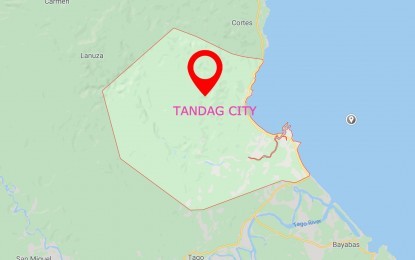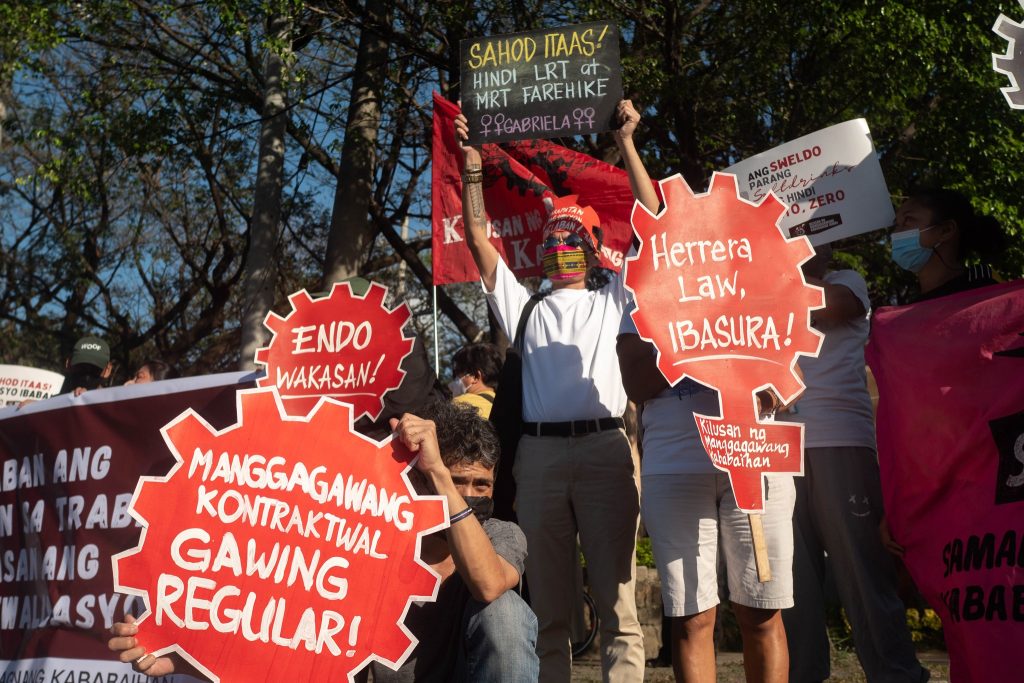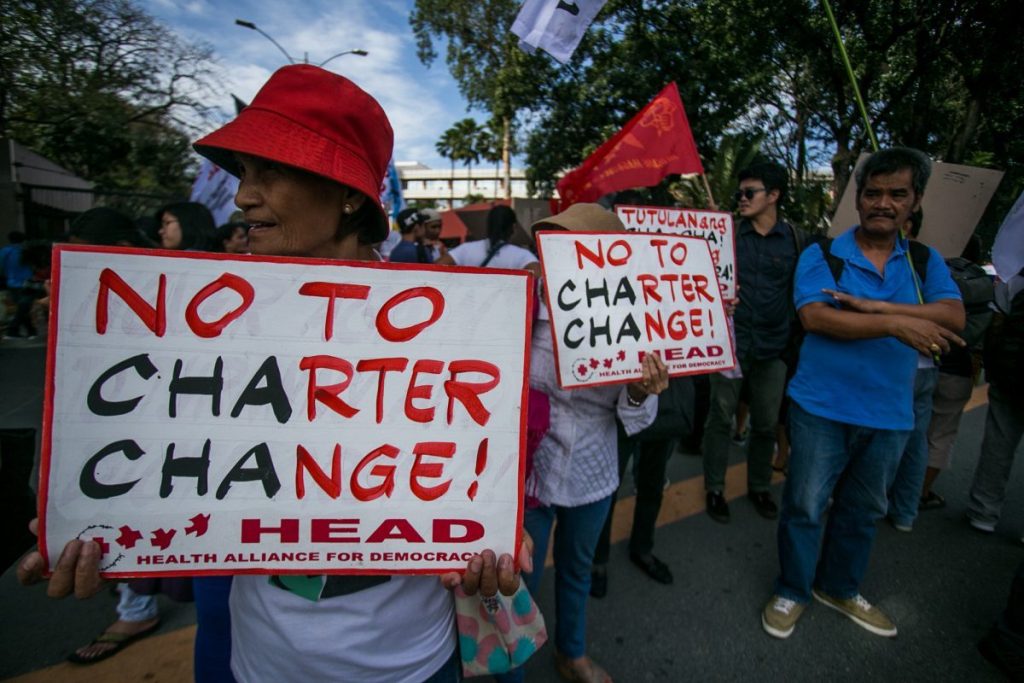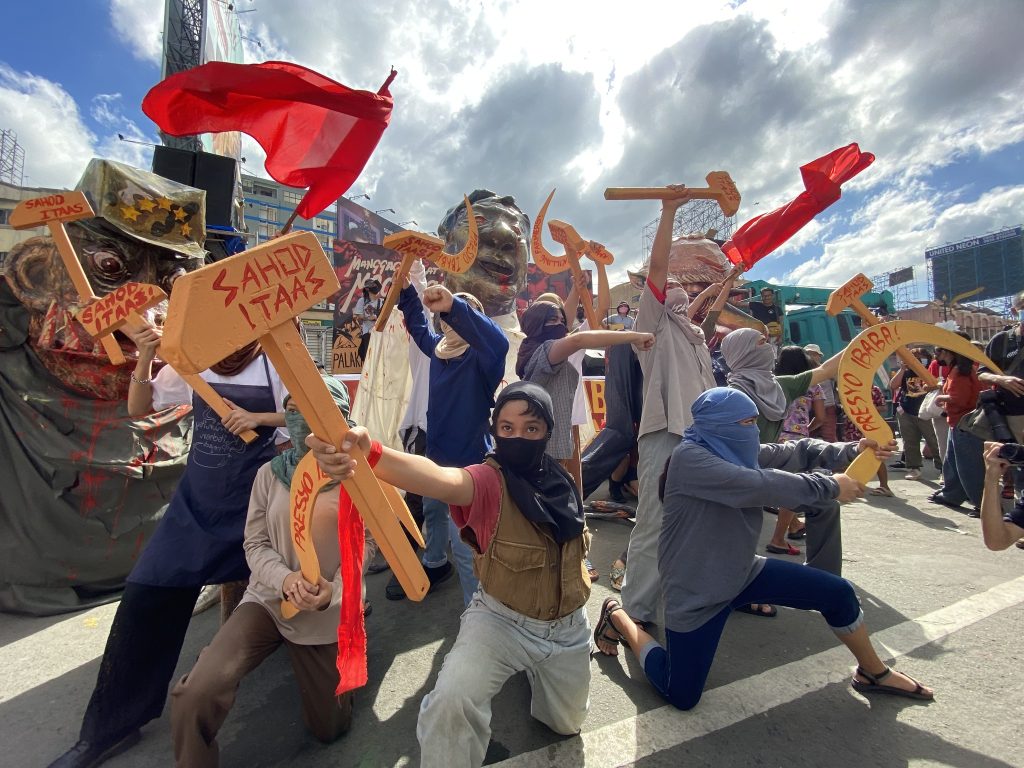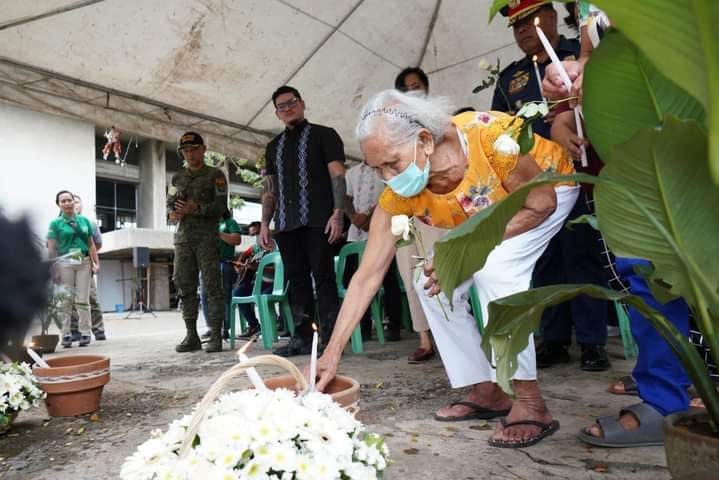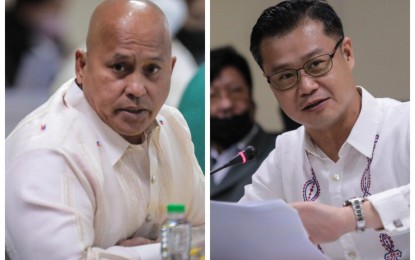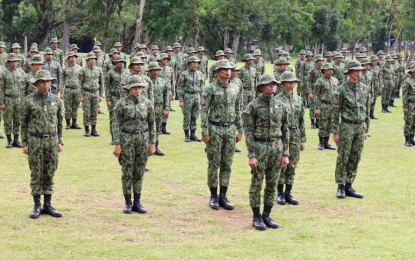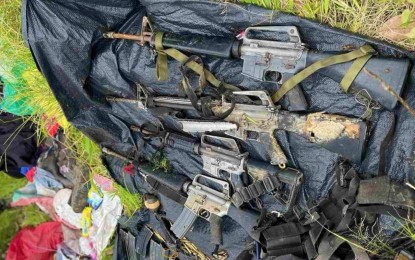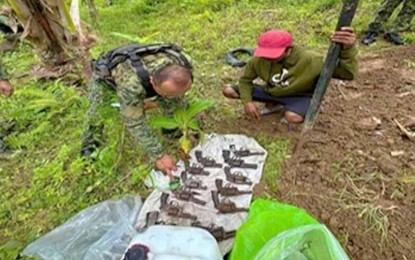From The Diplomat (Mar 3, 2023): Philippine Senator Questions Scope of New US Security Agreement (By Sebastian Strangio)
Comments by Senator Imee Marcos, the sister of President Ferdinand Marcos Jr., raise the question of where the outer limits of U.S.-Philippine cooperation lie.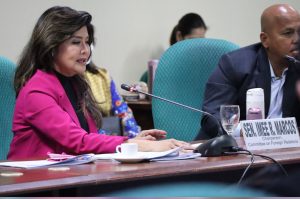 Philippine Senator Imee Marcos questions defense officials about the scope of the Enhanced Defense Cooperation Agreement between the U.S. and the Philippines during a hearing in Manila, March 1, 2023.Credit: Facebook/Senator Imee R. Marcos
Philippine Senator Imee Marcos questions defense officials about the scope of the Enhanced Defense Cooperation Agreement between the U.S. and the Philippines during a hearing in Manila, March 1, 2023.Credit: Facebook/Senator Imee R. MarcosOver the past few months, security relations between the Philippines and the United States have developed at a surprisingly rapid clip. The decisive step forward was taken last month, when the two nations agreed to open four more Philippine military bases to a rotational U.S. military presence under the Enhanced Defense Cooperation Agreement (EDCA). The 2014 agreement allows the U.S. rotational access to a select number of military facilities nominated by the Philippine government, and the expansion brings the number of bases open to U.S. forces to nine.
This was followed by announcements that the United States had allocated $82 million for the development of facilities at the initial five EDCA facilities, and talk of a possible resumption of joint maritime patrols in disputed parts of the South China Sea. All of this has been accompanied by declarations of mutual and undying friendship from Philippine and U.S. officials.
The expansion of the EDCA basing arrangement in particular speaks to how quickly relations have progressed since the departure from office last July of President Rodrigo Duterte. The gruff leader initiated a sharp turn against Washington and steered his government into friendlier relations with Beijing – despite the two nations’ ongoing tensions in the South China Sea.
The EDCA expansion appears to mark a decisive repudiation of Duterte’s foreign policy, and a growing harmonization of interests between the Philippines and its former colonial ruler and long-time security ally. At the same time, with tensions between the United States and China mounting over the future of Taiwan, it remains unclear exactly how far these Philippine pledges of friendship extend.
Some indications seemed to surface during Senate hearings this week, when Senator Imee Marcos, the chair of the Senate Foreign Relations Committee and sister of the president, confronted officials on the reported location of the four new EDCA sites, which she said would all be located in northern Luzon, close to the Taiwan Strait.
If the Philippines’ main concern is its sovereignty over disputed waters in the South China Sea, she asked, why would all of the new EDCA facilities be located on Luzon?
“Are we talking about the escalating tensions in the Taiwan Strait as the number one issue?” Marcos asked Defense Secretary Carlito Galvez Jr., according to a local media report. “I just need to understand why are you choosing all these sites in Northern Luzon when in fact if it were West Philippine Sea [South China Sea] deterrence that were uppermost in our minds, the protection of our territorial sovereignty, surely it should be in the western sector not purely in the northern.”
Indeed, if the South China Sea were to be the main focus of the new basing arrangements, one would expect it to involve an expansion of the U.S. presence on Palawan, the country’s westernmost island, which lies adjacent to the Philippine-claimed features in the Spratly Islands and it the headquarters of the Armed Forces of the Philippines’ Western Command. (One of the five initial EDCA sites is Antonio Bautista Air Base in Puerto Princesa, Palawan.)ADVERTISEMENT
Similar concerns have also emanated from the provinces. Manuel Mamba, governor of Cagayan province, which hosts one of the facilities U.S. troops might soon have access to, told Bloomberg this week that U.S. troops “are not welcome.” He added, “China has been good to us. I don’t see any threat coming from them and my province is one of the nearest to them.”
While Galvez told Senator Marcos that the four sites are still being negotiated with the United States, and President Marcos has emphasized that the final choice of bases was contingent on consultations with local authorities, these criticisms of the planned basing arrangements offer an interesting insight into Philippine perceptions of the U.S. alliance.
Such criticisms have long been common on the Philippine and international left. The International Coalition for Human Rights in the Philippines (ICHRP) last month described the expansion of EDCA in terms of the Philippines’ continuing colonial relationship with the United States. “The continued and expanding presence of the U.S. military in the Philippines means continued U.S. support for and participation in the violation of civil and political rights, and violation of the right to sovereignty of the Filipino people,” the ICHRP said in a statement.
Renato Reyes Jr. of the left-wing Bagong Alyansang Makabayan political bloc wrote on Twitter that the basing agreement might well drag the Philippines into conflicts “not of our choosing,” while failing to benefit the Philippine military, which would be reduced to “mere perimeter guards of these U.S. facilities.” He added, “EDCA may lead to an arms race between the U.S. and China, and worsen the conflict between 2 superpowers… U.S. is here only to protect its own interests.”
While the Philippine left has been making similar arguments for years – indeed, such arguments played a prominent role in the successful campaign for the closure of the U.S. bases at Clark and Subic Bay in the early 1990s – it is much more surprising to hear such criticisms emanating from the mainstream of the political establishment. The fact that the sister of the president is asking such questions about his foreign policy suggests that there is a portion of the mainstream that is skeptical of the current turn toward Washington, or at least open to questioning how it will benefit the Philippines.
One need not view the Philippines as a colonial appendage of the United States to acknowledge that for all the areas of strategic overlap and cultural affinity, Manila’s interests are not fully congruent with those of Washington. The U.S. views the South China Sea disputes as a subset of a broader array of concerns about the threat posed by China’s growing power to the U.S.-led international security order, a challenge that is more pressingly manifesting in the growing frictions over Taiwan.
Meanwhile, the Philippines appears focused more on the specific goal of securing its sovereignty over its Exclusive Economic Zone in the face of growing Chinese incursions, while also preserving a productive economic relationship with China, as President Marcos has himself emphasized. How much the nation would be willing to sacrifice for the preservation of the “rules-based international order” is open to question, especially given its proximity to China and likely frontline position in any future conflict over Taiwan.
All this raises the question of where the outer limits of cooperation lie for Manila, and at what point such divergences become apparent – especially as tensions continue to grow over the Taiwan Strait. The dizzying pace of recent security cooperation suggests that the point might still be some way off.
You have read 4 of your 5 free articles this month.
[Sebastian Strangio is Southeast Asia editor at The Diplomat.]
https://thediplomat.com/2023/03/philippine-senator-questions-scope-of-new-us-security-agreement/




